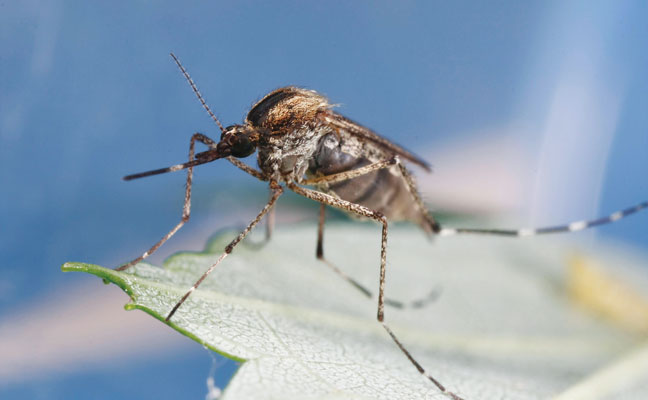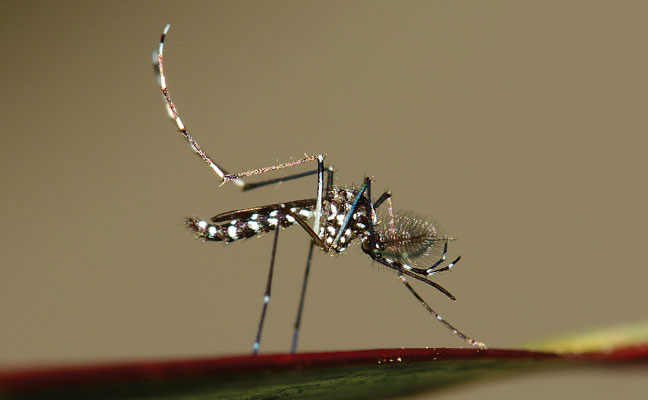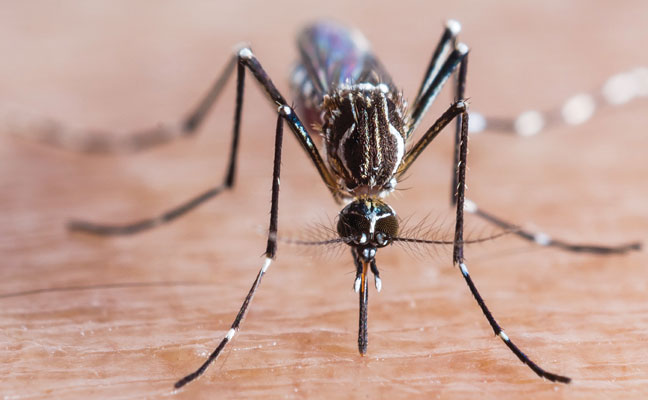Customer awareness of the health problems mosquitoes may cause often leads to additional work for pest management professionals (PMPs). While PMPs are experts at finding and eliminating breeding sources that attract mosquitoes, most are not trained to provide medical advice. When customers have questions about mosquito-borne diseases and viruses, refer them to a reputable resource.
The following facts are courtesy of the U.S. Centers for Disease Control and Prevention (CDC):

Encephalitis mosquito (Culex tarsalis) PHOTO: JOSEPH BURGER, BUGWOOD.ORG
West Nile virus
- The encephalitis mosquito (Culex tarsalis) is one of the major species responsible for West Nile virus (WNV). They are apt to bite from evening to morning.
- Mosquitoes become infected with WNV when they feed on infected birds. When the infected mosquitoes bite people and animals, they spread WNV.
- WNV is found in all 48 contiguous states. The virus circulates in mosquitoes and birds every year.
- Vaccines and a targeted antiviral treatment are not yet available for WNV.
- Laboratory tests can confirm the presence of WNV antibodies.
- Approximately 80 percent of people infected with WNV will not show symptoms. The remaining 20 percent will have a fever, as well as other symptoms such as rash, headache, joint pain, body aches, vomiting or diarrhea.
- A few of those infected — about one in 150 — will contract a severe central nervous system illness, such as encephalitis or meningitis, that sometimes can be fatal. Symptoms include fever, headache, stiff neck, stupor, disorientation, coma, tremors, convulsions, muscle weakness, vision loss, numbness and paralysis. Recovery from this severe illness may take several weeks or months, although some health effects may be permanent.
- Over-the-counter pain relievers may help reduce fever and relieve some symptoms.
- A few WNV cases have occurred after exposure in a laboratory; through blood transfusion and organ donation; and from mother to baby during pregnancy, delivery or breast feeding.
- WNV is not spread through coughing, sneezing or touching; by touching live animals; by handling live or dead infected birds; or by eating infected birds or animals.
- State and local health departments report cases of WNV to the CDC.

Asian tiger mosquito (Aedes albopictus) PHOTO: ISTOCK.COM/IMNATURE

Yellow fever mosquito (A. aegypti) PHOTO: ISTOCK.COM/TEPTONG
Zika Virus
- The yellow fever mosquito (Aedes aegypti) and the Asian tiger mosquito (A. albopictus) spread Zika virus. They typically bite during the day, and sometimes at night.
- Vaccines or medicine are not available for Zika virus.
- A blood or urine test is used to confirm the Zika infection.
- People rarely die from the Zika virus.
- Pregnant women who contract the Zika virus may give birth to babies with severe brain defects, including the microcephaly birth defect of the brain. Other health issues, such as miscarriage, stillbirth and other birth defects, may occur.
- The most common Zika virus symptoms are rash, red eyes, headache, fever, joint pain and muscle pain. Symptoms may last from several days up to a week.
- Zika virus is transmitted through mosquito bites, from a pregnant woman to her fetus, through sex, and most likely through blood transfusions (a method that has not yet been confirmed).
- Once a person has been infected with Zika virus, they are likely to be protected from future infections.
Read a full PDF version of PMP’s 2019 Mosquito Management Survey here.
The post Mosquito-borne disease risks appeared first on Pest Management Professional.
from Pest Management Professional https://www.mypmp.net/2019/05/18/mosquito-borne-disease-risks/
Sacramento CA
No comments:
Post a Comment